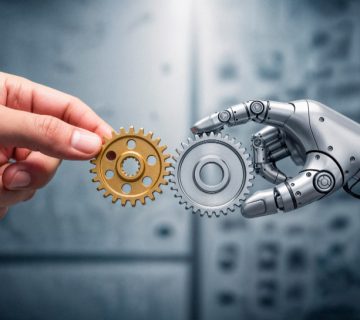In an era defined by digital acceleration, businesses are recognizing that data is no longer a by-product of operations—it’s the lifeblood that fuels innovation, decision-making, and sustainable growth. Yet as the scale, speed, and complexity of data grow exponentially, traditional processing models often struggle to meet the dynamic demands of modern enterprises. This evolving landscape has given rise to intelligent data processing ecosystems—integrated frameworks that harness automation, machine learning (ML), artificial intelligence (AI), and real-time analytics to transform raw information into actionable intelligence.
Unlike conventional data pipelines, which often operate in isolated silos, these intelligent ecosystems enable seamless interoperability across functions—from customer experience and logistics to finance and product innovation. By leveraging advanced algorithms, predictive analytics, and cloud-native architectures, organizations can process immense data streams rapidly, identify anomalies automatically, and optimize resource allocation in real time.
AI-driven automation plays a central role here. It eliminates repetitive manual data handling tasks while ensuring accuracy and compliance. For instance, natural language processing (NLP) algorithms can extract insights from unstructured text such as customer feedback or support logs, while robotic process automation (RPA) can accelerate data validation and reporting cycles. Together, these capabilities enhance efficiency not by merely reducing human intervention but by augmenting human decision-making with precision and speed.
Moreover, the integration of real-time analytics has redefined how businesses respond to shifting market conditions. Cloud-based processing engines and edge computing systems now allow data to be analyzed at the point of origin—whether from IoT sensors in manufacturing lines, smart logistics systems in supply chains, or digital transactions in e-commerce platforms. This immediacy empowers companies to anticipate operational issues, optimize inventory levels, and personalize customer interactions with incredible accuracy.
Ultimately, the emergence of these ecosystems marks a paradigm shift. Businesses are no longer just capturing data—they are interpreting and acting on it as it unfolds. In doing so, they are recalibrating their entire operational models toward proactive, insight-led efficiency that scales effortlessly with growth.
The transition from traditional data workflows to intelligent decision engines represents one of the most profound transformations in the digital economy. Historically, data processing was linear and batch-oriented—information was collected, stored, cleaned, and analyzed after the fact. Decisions were reactive, often delayed, and heavily dependent on human interpretation. Today, the convergence of cloud computing, artificial intelligence, and scalable automation has inverted that paradigm, enabling data-driven decisions to occur continuously, dynamically, and at scale.
At the core of this transformation lies machine learning, which not only refines data analysis but also enables adaptive strategy. ML algorithms learn from historical patterns and continuously improve their models, providing organizations with foresight into potential business scenarios. Predictive maintenance in manufacturing, dynamic pricing in retail, and fraud detection in financial services are prime examples of how predictive analytics empowers companies to stay ahead of disruptions and optimize performance before inefficiencies arise.
Furthermore, innovations such as stream processing and distributed data architectures have ensured that scalability is no longer a limiting factor. Modern enterprises can now effortlessly handle petabytes of data across hybrid environments, maintaining both agility and governance. This scalability extends to decision-making structures as well—while traditional approaches often bottlenecked at executive levels, intelligent decision systems democratize insights across departments, ensuring every stakeholder, from front-line employees to senior leaders, can leverage accurate and timely information.
The cultural shift accompanying these technological advances is equally important. Organizations are moving toward data-centric cultures where experimentation, transparency, and continuous improvement define operational success. Intelligent data ecosystems empower teams to not only track performance metrics but also simulate strategic outcomes using advanced modeling tools. This iterative approach drives innovation cycles faster and mitigates risk, facilitating long-term resilience.
Looking ahead, the integration of quantum computing, AI-driven process simulation, and autonomous analytics platforms promises to further amplify the speed and intelligence of data processing. Businesses that invest in these next-generation technologies will be better equipped to navigate uncertainty and seize new growth opportunities in increasingly volatile markets.
In essence, innovations in data processing are not just improving efficiency—they are redefining what efficiency means. By shifting from reactive data handling to proactive intelligence, organizations gain the ability to evolve continuously, aligning operational agility with strategic foresight. The result is a new business paradigm where efficiency is not merely about saving time or cost, but about transforming the very way enterprises think, decide, and compete in a data-driven world.





No comment